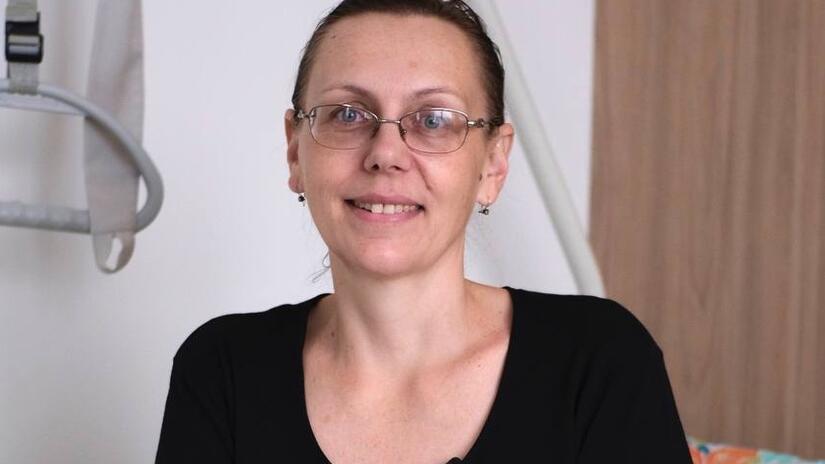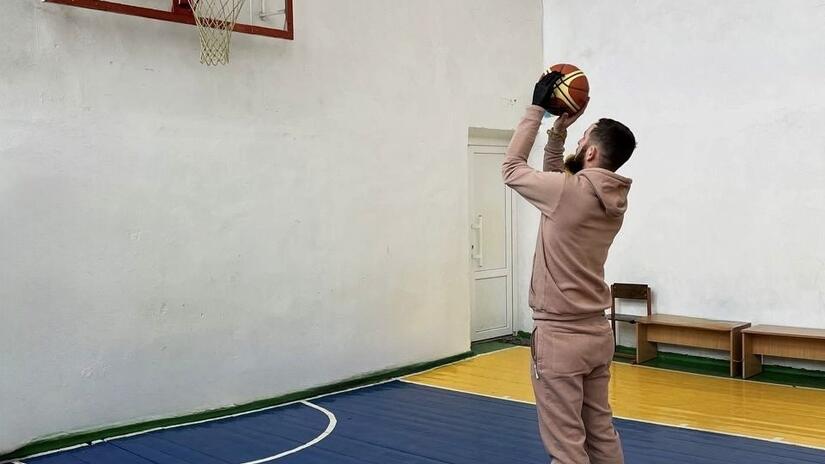Across Ukraine, people deal with the daily reality of air alerts and fear. Areas remain under evacuation, and some people cannot return home.
But in many parts of Ukraine, recovery has begun and it’s about more than the reconstruction of buildings and infrastructure. It’s about restoring people’s health, livelihoods and wellbeing.
The Ukrainian Red Cross (URCS) contributed to the creation of the National Rehabilitation Center Unbroken in Lviv, where recovery comes in the form of treatment, rehabilitation, and in some cases prosthetics.
"In the time since the injury, I had already learned to cope with many things using just one arm,” says Valentin Anohin, a physical education teacher who lost his arm due to injury in the conflict. “But when I put on the prosthesis, I felt how much easier my daily routine became. Now I can do everything twice as fast."
After five months of rehabilitation, Anohin realized his dream. Using the prosthetic, he successfully threw a basketball straight into the hoop.

Yana Kovalova lost her leg after an explosion in her backyard in Donetsk.
Photo: IFRC
From fear to confidence
Yana Kovalova lost her leg due after an explosion in her backyard in Donetsk. Found by neighbours, she was evacuated and had surgery before being stabilized and moving across Ukraine to the Unbroken centre.
"Physical therapists started working with me immediately here,” she says. “At first, I was afraid to even stumble on crutches – let alone climb stairs. But with each session, I feel more and more confident."
Vyacheslav Aleksandrov‘s experience started with questions.
“The first feelings after the injury were fear. What to do next? How will all this be?” he said, adding the process is different for everyone.
"My acquaintance, whose limb amputation was not high, started walking in just three weeks. For someone else, it's a complex and lengthy process, involving both group and individual work."
“Psychological support is crucial."

Valentin Anohin, a physical education teacher, is now able to play basketball and other sports thanks to the Unbroken Centre. He lost his right arm due to an injury from the conflict.
Photo: IFRC
‘She really inspires me’
With support from the IFRC and other partners, URCS look for new ways to engage and support people with disabilities. Red Cross also supports mental health at Unbroken.
“We help them to stabilize their mental feelings. Sometimes they lose their houses or their relatives,” said Sofia Nevoyt, a psychotherapist at the Unbroken centre.
One of her clients was injured very badly. “But she was very motivated,” she said. “She told that when this event happened she was even shouting, ‘I want to live.’”
“Her progress was very good and I really love to work with her because she inspires me too.”
URCS contributes to the recovery of local communities by supporting access to health, mental health, and social care services. Psychosocial support and rehabilitation programs will continue to be focal points for URCS in the years ahead.





